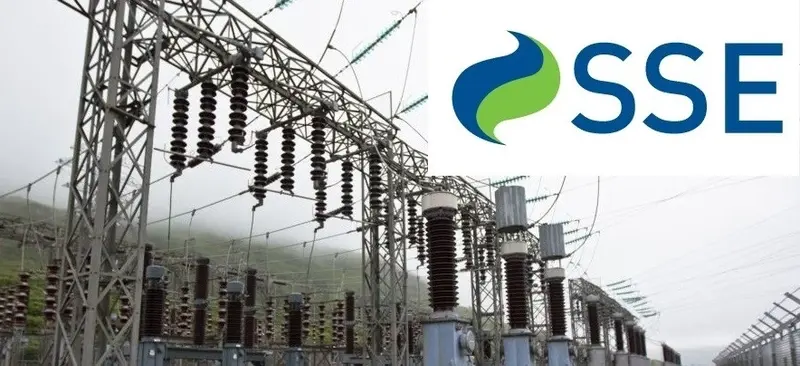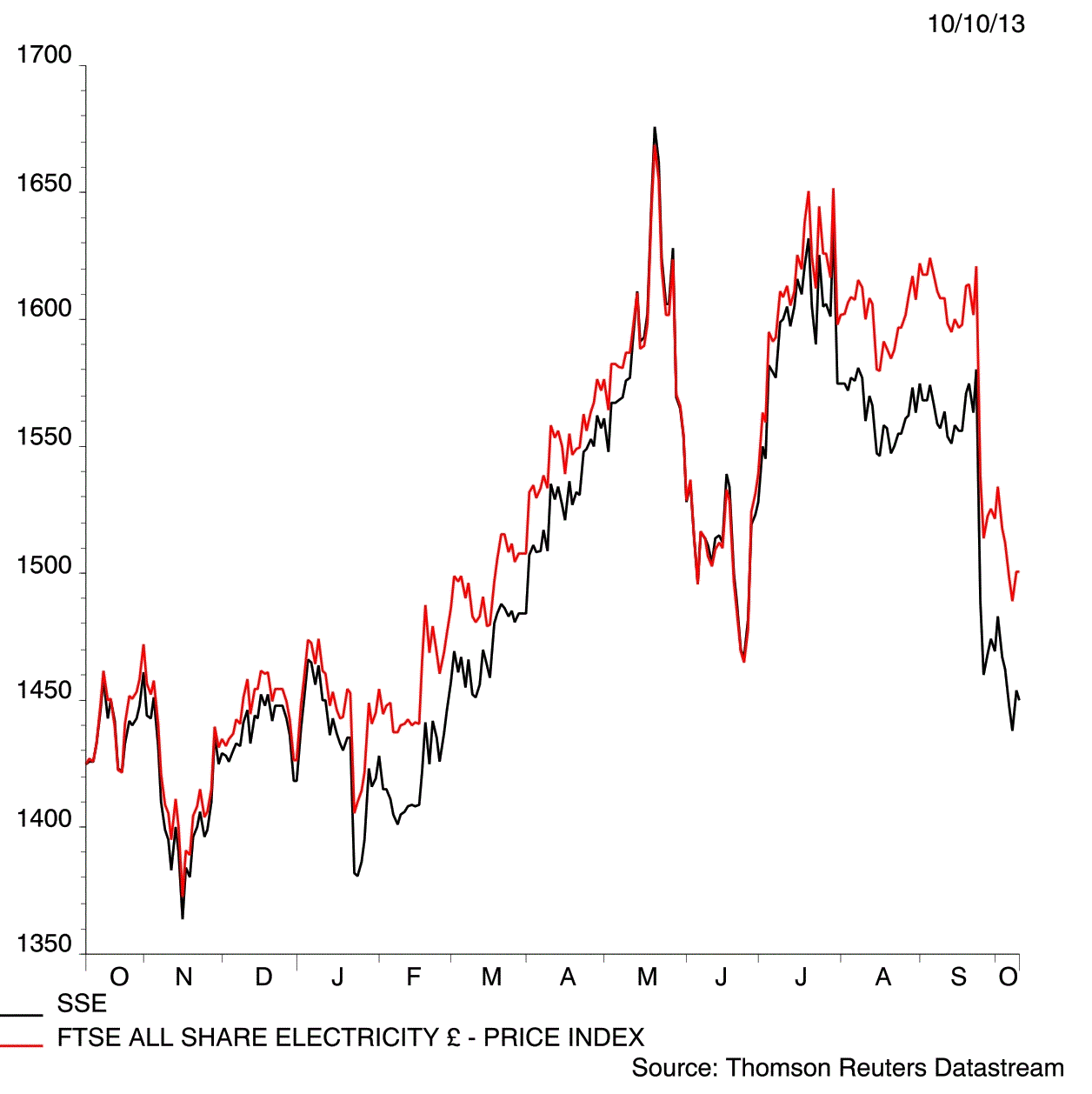
If company valuations were set by volume of newspaper headlines and social media chatter then SSE's (SSE) share price would probably be up 20%. Or down 20%, depending on how you look at it. As it is, news that the energy giant has kicked-off the latest (and unsurprising pre-winter) tariff price hikes for its 4.4 million electricity customers and 2.9 million gas customers (less those fixed pricers) has got the market... well, shrugging. The stock is dead flat at £14.54 as I write.
The announcement is long but it's worth spinning through if only for the energy impact discussion the company has with itself, about half way down.
'We know we will come in for a great deal of criticism for this decision and politicians will no doubt be lining up to condemn us. But over many years policymakers themselves have failed to highlight adequately the cost to consumers of the policies they have pursued in government,' says Will Morris, group managing director of SSE's retail business.
'They can't expect to have power stations replaced with new technologies, the network to be upgraded and nationwide energy efficiency schemes all to be funded for free. And as an energy provider we are in the unenviable position of having to pass this cost on to customers through energy bills.'
Cue typical responses from consumer groups. ?Although widely expected, this is the last thing consumers want as the Autumn chill sets in. SSE's average direct debit, dual fuel, bill will be up to £1,376 from £1,272,' says Adam Scorer, director of Consumer Futures, a regulated markets action group.
Jeremy Cryer, energy spokesperson at price comparison website Gocompare.com, adds: 'SSE's announcement has kicked off the inevitable domino-effect of energy price rises that we have come to expect at this time of year. It's now just a case of when, rather than if, the rest of the 'big six' will follow suit.'
Perhaps the most salient point in SSE's statement for investors is the group's open admittance that its' energy supply business keeps missing its 5% operating margins targets, which you'll find under the heading 'Making a fair and reasonable profit'.
Of course, the cynic in me suspects this revelation is not aimed at investors or financial markets but still at the politicians, a sort of covert contention that SSE is not making a monkey out of Gus, or taking the proverbial 'michael' out of its customers.
For investors, one of the pressing issues remains the payout. SSE maintains a policy of providing dividend increases above the level of the Retail Price Index (RPI), while market analysts anticipate an 88.3p per share dividend for the year to March 2014, covered 1.3-times by forecast earnings per share of 118.6p, fairly comfortable by regulated industry standards, and promising a yield of near 6.1%.
It's these dividend details that are of important to most SSE shareholders, many of whom may also be customers. What may worry them in the short-term is that fending off political brickbats over consumer tariff prices could escalate the popularity of price freeze initiatives spelled out by Labour leader Ed Milliband, if he gets elected in 2015. SSE shares fell more than 3% on that bit of news last month. That's of far more significance to the long-term future of SSE's shares.





